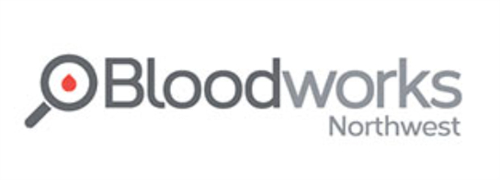
Programs designed to help those experiencing hunger in Washington were stretched thin before COVID changed our lives in March 2020. When COVID restrictions and health concerns took hold, these programs had to change the way they provided food to needy individuals and families; creating new alliances to deliver needed groceries instead of waiting in line at a food bank or pantry among other innovations.
Rotarian and Human Community Services committee member, Joyce Robertson, described how fortunate we are to have fellow Rotarian David Bobanick as Executive Director of Rotary District 5030’s Harvest Against Hunger program. She encouraged Rotarians to join their group for Harvest Against Hunger food packing parties once they commence again, recognizing the leadership of David who helped organize the ‘parties’ and aims to help build better healthier food systems.
“Hunger in our community is prevalent and often right in front of us,” he began as he introduced the day’s panelists who described how the pandemic changed their programs and perspectives: Derek Sandison - Director, WA State Department of Agriculture; Sara Seelmeyer - Food Security Program Manager, United Way of King County; and Yamila Sterling-Baker, Manager, Seattle Food Committee/ Solid Ground.
“The pandemic required new approaches to provide food to people in need in our community,” David said. “The organizations represented today are making an impact by doing some wonderful things.” Food insecurity began as a problem in the sixties when non-profits got involved with hunger relief. These non-profits have since grown to provide food to people in need to build healthy communities, including contractual relationships with hunger programs to provide food access.
“Collecting and collaborating or sharing the work with other organizations is the way Rotary has always operated,” David said as he introduced key player, Washington Department of Agriculture Director, Derek Sandison, who has led the organization for more than six years, with 900 full time and 200 part-time employees. WSDA has been engaged with food assistance for eleven years, focused primarily on moving products from the USDA food assistance program to food banks/pantries across Washington state. WSDA now builds relationships with external partners and initiates food insecurity initiatives to bring food and food systems to a more prominent level. “We want to make sure all Washingtonians have access to safe healthy food by ensuring adequate capacity with cold and dry storage and donated refrigerated trucking to keep food banks and pantries in operation. This year WSDA has moved $140M worth of food from farms to food insecurity organizations. He said WSDA is working with Legislators “for more appreciation of the food supply chain”.
The day’s second panelist, Sara Seelmeyer manages the food security program for United Way of King County that has delivered groceries to 5,500 households and provided meals to 2,000 people in need.
“United Way is working to build a racially balanced community in two ways: operating direct service programs and providing grants for immediate needs,” she said. During the pandemic, she described how hunger reached a crisis level. “Much of our work focuses on urgent community needs as food insecurity rates went up during the pandemic with food banks/pantries stretched beyond belief,” she said. “Existing programs could not meet the need with limited home delivery options.” United Way struck a partnership with Door Dash to launch a home delivery program to 5,500 households in South King County, 70% of which identify as people of color. She said United Way works with partners to provide culturally specific food that fits well into their diets. “For those having trouble accessing the emergency food system, the pandemic has allowed us to rethink our approach with deliveries,” she concluded, “vs. having to wait in long lines.”
“United Way is working to build a racially balanced community in two ways: operating direct service programs and providing grants for immediate needs,” she said. During the pandemic, she described how hunger reached a crisis level. “Much of our work focuses on urgent community needs as food insecurity rates went up during the pandemic with food banks/pantries stretched beyond belief,” she said. “Existing programs could not meet the need with limited home delivery options.” United Way struck a partnership with Door Dash to launch a home delivery program to 5,500 households in South King County, 70% of which identify as people of color. She said United Way works with partners to provide culturally specific food that fits well into their diets. “For those having trouble accessing the emergency food system, the pandemic has allowed us to rethink our approach with deliveries,” she concluded, “vs. having to wait in long lines.”
Yamela Sterling-Baker, program manager for food system support with Solid Ground said her group works with 28 food banks in the Seattle area. Her program was moving toward a supermarket model that was stopped when Covid restrictions were implemented. “Food banks are managed by volunteers, many of them seniors, who couldn’t come to volunteer,” she said. “WSDA helped provide national guard support to help coordinate food distribution – sorting food and delivery – and in five months we provided 333 deliveries of PPE supplies.”
Panelists concluded with comments about food insecurity being an ongoing social problem that requires concerted efforts across Washington state thanks to our bountiful agriculture sector.
President Jimmy rang the bell promptly at 12:30 for the day’s Zoom session. Past Rotary presidents, Bill Center and Todd Summerfelt performed a Rotary-inspired version of the 1970 classic by the band, FREE, “It’s All Right Now”.
He asked Joel Paget to deliver the day’s inspiration that focused on the creation of the United Nations following World War II. It focused on “everyone has a right to a standard of living including food, clothing, housing, and security. “Share your wealth to be an example to others,” he said. “Hunger and thirst for righteousness … when there is a greater number of people filled righteousness fewer people will be hungry.” Inspired leaders connecting for good.
The day’s short program featured Seattle Rotary Service Foundation Chair, Dave Kraft, and board member Jon Bridge for an update on the current campaign. They emphasized the importance of full participation in support of SRSF, as an obligation of rotary membership. With a goal of $250K, Rotarians have so far chipped in almost $160K. “We need the other 65% of our members to contribute in support of our service groups, said Dave Kraft who announced winners of wine incentives that were put in place to stimulate early and increased contributions. Jon Bridge reminded Rotarians how SRSF contributions support downtown, kids in school, and international Rotary projects.
Next week Rotarians will learn about the Duwamish River from BJ Cummings who is the founder of the UW Superfund Research who leads a community effort to clean up and restore the river.
President Jimmy concluded with advice for leaders… “Each of us should study ideas and models that will promote your personal development, pushing you from your routine comfort zone,” he said. “Leadership is the privilege to have the responsibility to supervise others in an organization and try to provide compelling direction to help the organization”.
Rotarians inspire hope.

Thank you Newsletter reporter, Pete Delaunay!
